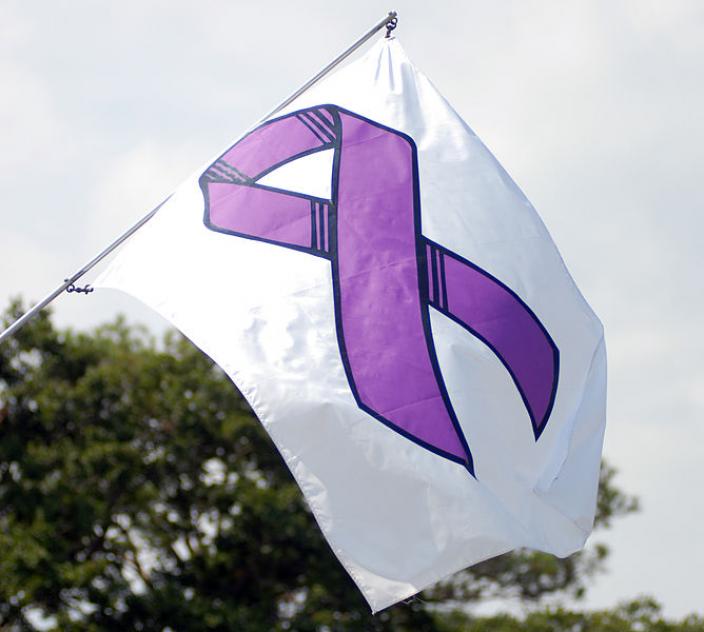
R’eih deals with the laws and regulations that God reveals to the Israelites just prior to entering the promised land. We learn quickly that there is no room for debate in this Covenant between God and the Israelites; loyalty to the “rules” and to God is the only way.
God promises to “favor” the people and “multiply them” if they obey and follow the commandments put forward. The laws described in R’eih relate to daily life, including worship practices, consumption of meat, debt, property ownership, tithing, treatment of widows and more. While these rules and obligations apply to the entire group assembled, most apply to males. Not surprisingly, women’s roles were defined by relationships to men. Even though we all were commanded to look after the widow, only widows were allowed to function on their own authority.
In R’eih, the people of Israel are commanded to pray at a place chosen by God, most likely to insure that idolatry would not occur as it might have in an individual family’s worship. “You shall not act at all as we now act here, each (householder) as he pleases.” (Deuteronomy 12:4)
Even though we no longer engage in animal sacrifice or perform other rituals outlined in R’eih, I view this shift to a more centralized form of worshipping as a bridge to our modern times because we reap tremendous value in communal prayer. Modern synagogue life offers us a community of those who share our values and a unique opportunity to educate, challenge, emulate and support each other. Our physical gathering place serves as a symbol for the strength that we create when many voices join together.
It’s somewhat ironic that the festival most meaningful to me is one observed in the home - Pesach. While the Seder is all about tradition and rules, we’ve been able to update the Hagaddah to reflect contemporary issues. How gratifying it was for me to receive my first Miriam’s cup and realize that the Seder can be more inclusive.
Even though I was brought up as a Reform Jew, my early influence was my Orthodox Bubbie who lived with my family. We followed the rules of Kashrut; we refrained from all form of work on the Sabbath and other Holy Days. However, when my family joined a Reform congregation, my grandmother came to terms with this. She valued education over tradition and understood my thirst for Jewish knowledge and desire to become a Bat Mitzvah. From this experience, I learned that flexibility and interpretation do not lessen the strong messages of R’eih.
Even at this young age, the Reform movement made sense to me in a way I couldn’t articulate. I intuited its fairness. I could sit with and study with boys and girls; I could be part of a minyan, read from the Torah on the pulpit and become a leader in my youth group. Overall, it helped me develop into the questioning and socially involved woman I am today. My way of honoring my covenant with God may take a different twist than my forefathers and foremothers envisioned, but it is sincere.
I am proud that both the synagogue community and sisterhood support our less fortunate neighbors with food and clothing drives. Bet Aviv Sisterhood cooks for a homeless shelter, collects school supplies for disadvantaged children and brings gently used clothes to allow women to dress for new professional lives. Last year, we held an “Empty Bowl” lunch where sisterhood members made soup to serve to attendees. Each person left with the satisfaction that their admission would help those who often do without.
Through my early adult years I advocated for social issues that had special meaning to me. I had the privilege of participating in a caucus of Jewish women to help move forward the Equal Rights Amendment. I thought that I had died and entered Feminist heaven when I found myself in the company of Gloria Steinman and Bella Abzug at one of these sessions! At a later date, I helped organize a local “Plea for Soviet Jewry” and supported Pro-Choice marches.
For the past several decades, I have made my home in Women of Reform Judaism. My life has been greatly enriched by this organization of women who inspire me with their wisdom and knowledge. I enjoy the spirituality that infuses the room when we worship together. I’m proud of the social justice resolutions on pay equity, human trafficking and egalitarianism at the Wall. I am grateful for the opportunity to act on them whether through letter-writing or through marching.
WRJ provides us with myriad ways to keep our Covenant with God. I hope that you are prompted to read WRJ’s Weekly Digest emails, and the Advocacy Updates from WRJ and the Religious Action Center. I hope that you share this information with your sisterhood and congregants. I encourage you to attend district events, Kallahs, and conventions, as well as WRJ conferences and to take advantage of the WRJ Speakers Bureau and Consultant Program.
Judy Silver Weisberg is the President of WRJ Mid-Atlantic District and most recently served on the Advocacy Task force on the WRJ Board. Before she retired, she taught English at both the high school and community college level and had a second career in journalism. She enjoys reading, exercising in the water and testing recipes for a local cookbook author in Columbia, MD where she lives.
Related Posts

Parashat Yom Rishon shel Rosh HaShanah

Cultivating a Culture of Accountability and Belonging

